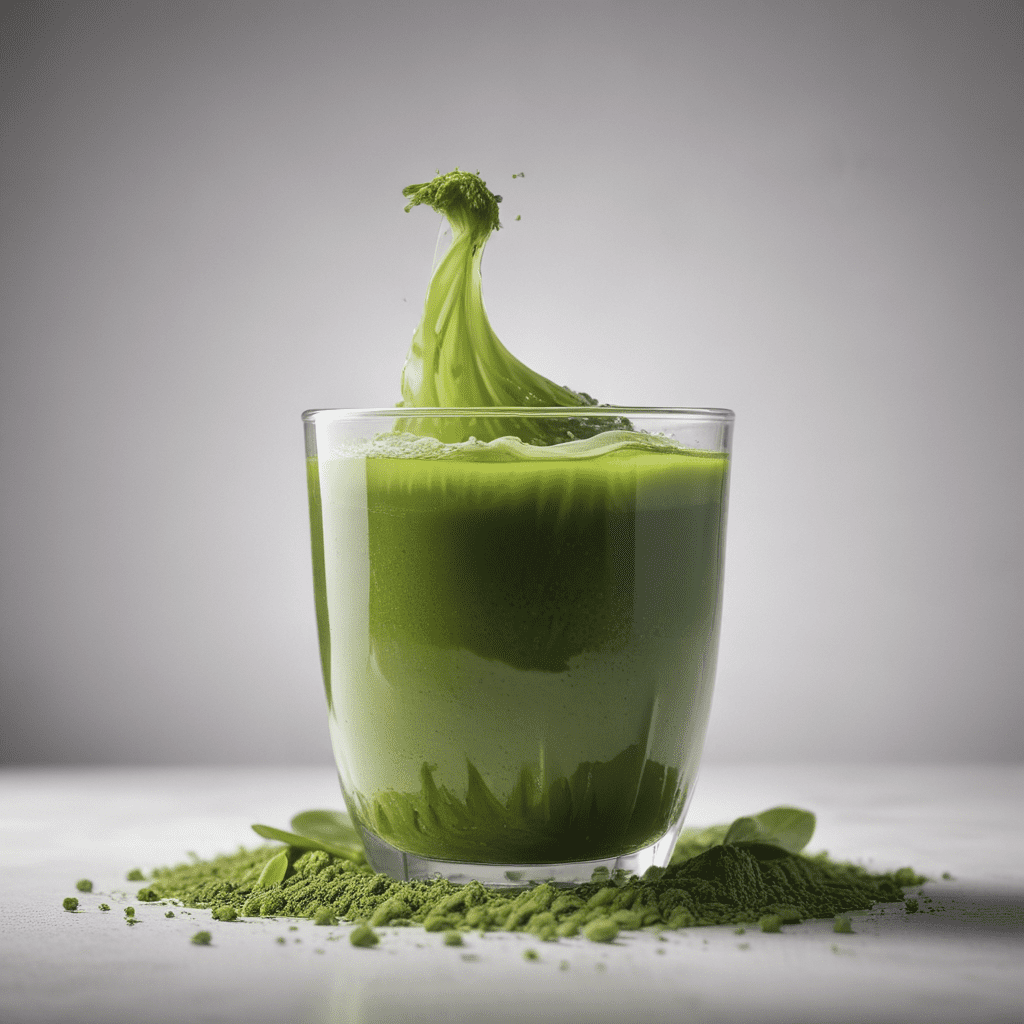Introduction
Anciently celebrated for its medicinal properties, matcha remains a green tea variety renowned for its vibrant emerald hue and potential health benefits. Its rich composition, brimming with antioxidants and other bioactive compounds, has captured the interest of researchers who unceasingly probe its multifaceted impact on human well-being. Lately, matcha has garnered attention for its potential influence on hormonal balance, a delicate equilibrium vital for overall health and well-being.
The Science Behind Matcha
Matcha's verdant vitality stems from its unique cultivation process. Unlike other green teas, matcha plants are shaded for approximately three weeks before harvest, prompting a surge in chlorophyll production. Chlorophyll, the pigment responsible for plants' verdant hue, imparts matcha with its characteristic deep green color and is believed to contribute to its therapeutic effects. Moreover, matcha contains an array of potent antioxidants, including catechins and polyphenols, which have demonstrated anti-inflammatory, anti-cancer, and neuroprotective properties.
Matcha's Role in Hormonal Balance
Emerging research suggests that matcha's wealth of antioxidants and bioactive compounds may play a beneficial role in hormonal balance. Studies indicate that matcha may influence the regulation of estrogen, progesterone, thyroid hormones, and adrenal hormones, all of which play crucial roles in various bodily functions, including reproductive health, metabolism, and mood.
Thyroid Function
Matcha's potential impact on thyroid function has also piqued scientific interest. Thyroid hormones are responsible for regulating metabolism, growth, and development. Research suggests that certain compounds in matcha may support thyroid health. For instance, catechins have been found to inhibit the enzyme responsible for converting T4 (inactive thyroid hormone) to T3 (active thyroid hormone). By modulating this conversion, matcha may help ensure optimal thyroid hormone levels.
Adrenal Hormone Regulation
Adrenal hormones, primarily cortisol and adrenaline, play key roles in stress response, energy levels, and blood pressure. Studies indicate that matcha may have a calming effect on the adrenal glands, reducing the production of stress hormones. This calming effect may contribute to improved sleep quality, reduced anxiety, and better overall stress management.
Matcha's Anti-Inflammatory Properties and Hormonal Health
Chronic inflammation is linked to various hormonal imbalances. Matcha's potent anti-inflammatory properties may play a role in mitigating inflammation and promoting hormonal health. Antioxidants in matcha, such as EGCG, have demonstrated anti-inflammatory effects in laboratory and animal studies. By reducing inflammation, matcha may contribute to a more balanced hormonal environment.
Practical Tips for Using Matcha to Support Hormonal Balance
Incorporating matcha into your daily routine may be a simple yet effective way to support hormonal balance. Consider the following tips:
- Choose high-quality matcha: Opt for organic, ceremonial-grade matcha for optimal benefits.
- Prepare matcha properly: Use a traditional matcha whisk (chasen) and warm water to whisk the powder until frothy.
- Start gradually: Begin with 1-2 cups of matcha per day and gradually increase to 3-4 cups as desired.
- Listen to your body: Monitor your body's response and adjust your matcha intake accordingly.
Conclusion
Matcha's rich composition of antioxidants and bioactive compounds holds promise for its potential impact on hormonal balance. Emerging research suggests that matcha may support estrogen, progesterone, thyroid, and adrenal hormone regulation, contributing to overall well-being. Incorporating matcha into your daily routine may be a simple and effective way to support hormonal health. However, it's important to note that further research is necessary to fully understand the mechanisms and long-term effects of matcha on hormonal balance. If you have any hormonal concerns, consult a healthcare professional before making any significant dietary changes.
Frequently Asked Questions
Q: How much matcha should I drink daily?
A: Generally, 1-4 cups of matcha per day is considered safe and beneficial.
Q: Can matcha help with hormonal imbalances?
A: Research suggests that matcha may support hormonal balance by influencing estrogen, progesterone, thyroid, and adrenal hormone regulation.
Q: Is matcha safe during pregnancy?
A: While moderate matcha consumption is generally considered safe during pregnancy, it's essential to consult a healthcare professional for personalized advice.
Q: Can matcha interact with medications?
A: Certain compounds in matcha may interfere with the absorption or metabolism of some medications. Always consult a healthcare professional before combining matcha with medications.



